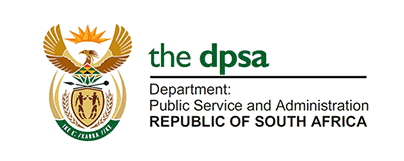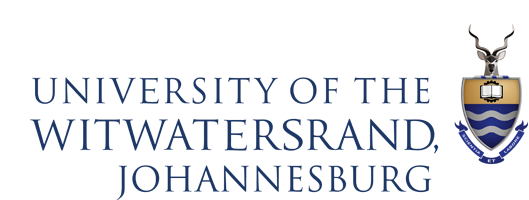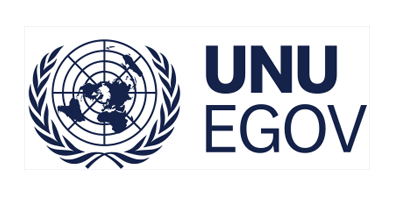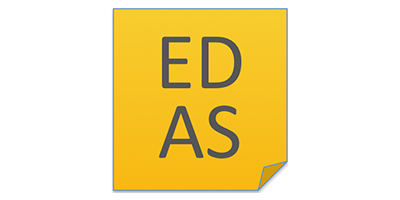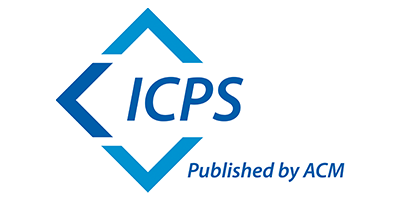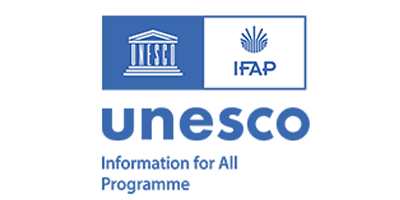All data related to each paper is taken directly from the submission and review platform (EDAS); its correctness is the responsibility of the author(s).
Doctoral Colloquium – Examining the Malawian e-Governance legal and policy framework vis-à-vis the right to participate in public affairs | Wesley Mwafulirwa (University of Cape Town, South Africa)
Doctoral Colloquium – Using chatbot for creating awareness on Sexual and Reproductive Health and Rights (SRHR) among adolescent: learnings from a field project in India | Rajnish R Prasad (IIHMR University, India)[withdrawn by the author on 25 August 2023]Doctoral Colloquium – The hidden costs of digital self-service: administrative burden, vulnerability and the role of interpersonal aid in Norwegian and Brazilian welfare services | Hanne Höglund Rydén (University of Agder, Norway), Luiz de Andrade (Tampere University, Finland)
Doctoral Colloquium – Maps, apps and portals: southern paradigms in technologies of governance | Khaliq Parkar (Université Paris Cité, France)[withdrawn by the author on 8 August 2023]Doctoral Colloquium – Smart territories competitiveness based on data use: use case of the Colombian smart territory | Fabiola del Toro, Victoria Ospina (Escuela Colombiana de Ingeniería Julio Garavit, Colombia), Elsa Estevez (Universidad Nacional del Sur, Argentina)
Paper Session 1 – FGT-SAMK-NN: impact of the “right to be forgotten” using a lazy algorithm in data stream learning | Eduardo Peniche, Leandro Miranda, Flavia Bernardini, José Viterbo (Universidade Federal Fluminense, Brazil)
Paper Session 1 – Metaverse as dispute: challenges for a state action agenda | Ergon Silva (Getúlio Vargas Foundation, Brazil), José Carlos Vaz, Anderson Freitas (Universidade de São Paulo, Brazil)
Paper Session 1 – TwiSP: a framework for exploring polarized issues in Twitter | Gabriela Diaz, Carlos Chesñevar, Elsa Estevez, Ana Maguitman (Universidad Nacional del Sur, Argentina)
Paper Session 1 – Stereotypes in ChatGPT: an empirical study | Tony Busker, Sunil Choenni, Mortaza S. Bargh (Rotterdam University of Applied Sciences, Netherlands)
Paper Session 1 – Emerging technologies in Africa: Artificial Intelligence, Blockchain, and Internet of Things applications and way forward | Charmaine Distor, Inês Campos Ruas, Tupokigwe Isagah, Soumaya Ben Dhaou (United Nations University (UNU-EGOV), Portugal
Paper Session 2 – Semantic interoperability for legal information: mapping the European Legislation Identifier (ELI) and Akoma Ntoso (AKN) ontologies | Michalis Avgerinos Loutsaris, Charalampos Alexopoulos, Maria Ioanna Maratsi, Yannis Charalabidis (University of the Aegean, Greece)
Paper Session 2 – Influence of ICT governance on cyber security: a generalized method moment (GMM) approach in Asia | Ayushi Agarwal, Sreejith Alathur (Indian Institute of Management Kozhikode, India), Rahul Lakhmani (Skiify Solutions, India)
Paper Session 2 – A more inclusive Europe through personal data sovereignty in cross-border digital public services | Nathan Carvalho (Oak Digital Consulting, Estonia), Lucy Temple (University for Continuing Education Krems, Austria), Urtza Barturen, Idoia Belacort, Enrique Sanchez, Valentin Pelaez (TECNALIA, Spain), Max Kortlander (WAAG, Netherlands)
Paper Session 2 – Veil: building a scalable e-Voting system using Blockchain with voter demographics obfuscation and anonymous vote accountability Assurances | Richa Gupta, Eshu Manohare, Aairah Bari, Sambuddho Chakravarty, Subhabrata Samajder, Arun Balaji Buduru (Indraprastha Institute of Information Technology Delhi, India)[withdrawn on October 2023]
Paper Session 3 – Kyrgyz Digital Code: building a regulatory framework for the digital transformation of the Kyrgyz Republic | Nikolay Dmitrik, Anastasia Kuvyrkova, Tattugul Mabetalieva (Consortium for the Development of Digital Legislation, Kyrgyzstan)[withdrawn on 1 September 2023]Paper Session 3 – Smart city operation model in Brazil | Diego de Azevedo (University of São Paulo, Brazil)
Paper Session 3 – Brazil as a leader in digital transformation | Linda Bower (Independent Researcher, USA)
Paper Session 3 – Digitalization and automation for the sake of IT? Insight from automation initiatives in Swedish municipalities | Daniel Toll, Maria Booth, Ida Lindgren (Linköping University, Sweden)
Paper Session 3 – Barriers and actions for the adoption and use of Artificial Intelligence in the public sector | Amal Marzouki (Université du Québec à Rimouski, Canada), Arbi Chouikh, Sehl Mellouli (Laval University, Canada), Rim Haddad (Higher School of Communication of Tunis, Tunisia)
Paper Session 3 – The challenge of web accessibility: an evaluation of selected government websites and service portals of high, middle and low-income countries | Zoran Jordanoski, Morten Meyerhoff Nielsen (United Nations University (UNU-EGOV), Portugal
Paper Session 4 – Working conceptual model of citizen identification: the case of Mozambique | Paulo Maculuve, Luis Amaral (University of Minho, Portugal)
Paper Session 4 – Use of domain ontology for representing people digital participation during emergency situation | Fernando Bichara Pinto, Marie Anne Macadar (Federal University of Rio de Janeiro, Brazil), Gabriela Viale Pereira (University for Continuing Education Krems, Austria)
Paper Session 4 – Drivers of e-Participation performance from a supply-side perspective: case of the Russian regions | Yury Kabanov (National Research University Higher School of Economics University, Russia), Andrei Chugunov, Georgiy Panfilov (ITMO University)
Paper Session 4 – Cross-country empirical analysis of digital citizen engagement | Maimouna Diakite, Michael Jelenic, Abdoul Wandaogo (The World Bank, USA)
Paper Session 5 – Maximizing the value delivered of chatbots in e-Gov using the incremental funding method | Marcelo Tueiv, Eber Assis Schmitz (Universidade Federal do Rio de Janeiro, Brazil)
Paper Session 5 – Assessment of the “Nursing Observatory” as a support tool to combat the contamination of nursing professionals by COVID | Matheus Cruz, Flavia Bernardini, Raissa Barcellos (Universidade Federal Fluminense, Brazil), Marcelo Persegona, Neyson Freire (Federal Nursing Council, Brazil), Júlia Persegona (Instituto de Desenvolvimento e Pesquisa, Brazil), Vanessa Nunes (SE7Ti – Tecnologia e Informação, Brazil)
Paper Session 5 – Enterprise architecture adoption in government: a public value perspective | Leif Sundberg (Umeå University, Sweden), Henrik Florén, Håkan Sundberg (Mid Sweden University, Sweden)
Paper Session 5 – Digital public services based on Bourdieu’s theory of practice: a proposal for a conceptual framework | João Silva, Diana Rodrigues (Universidade da Amazônia, Brazil)
Paper Session 5 – Assessing e-Participation indices: a call for more valid measurement | Gabriel Hofmann, Marine Charlotte Benli (University of Zurich, Switzerland), Uwe Serdült (Ritsumeikan University, Japan), Costa Vayenas (Pro Civis Think Tank, Japan), Jean-Patrick Villeneuve, Anna Picco-Schwendener, Leonardo Colosante (Università della Svizzera italiana, Switzerland)
Paper Session 6 – The rapid spread of online misinformation and its impact on the digital economy | Syed Shah (Digital Cooperation Organization, Saudi Arabia), Eleni Kapantai (International Hellenic University, Greece), Vassilios Peristeras (Council of the European Union, Belgium)
Paper Session 6 – Streaming city councils’ meetings on social media before, during and after the pandemic | Gonçalo Paiva Dias (University of Aveiro, Portugal)
Paper Session 6 – Diagnosis of a digital ecosystem in a Brazilian public organization | Marcos Silva, Rejane Figueiredo, Edna Canedo (University of Brasilia, Brazil)
Paper Session 6 – Exploring the functionalities and evaluation of the digital silver hub: a collaborative platform for innovative solutions in the silver economy | Sidra Azmat Butt, Ingrid Pappel, Dirk Draheim (Tallinn University of Technology, Estonia)
Paper Session 7 – Overdelivery in a digital service implementation on a tax recovery program | Caroline Tuttman, Marie Anne Macadar (The Federal University of Rio de Janeiro, Brazil), Gabriel Blum (Secretaria de Estado de Fazenda do Rio de Janeiro, Brazil)
Paper Session 7 – Citizen-centric and trustworthy AI in the public sector: cases of Finland and Hungary | Noémie Custers, Sara Talpo, Emilia Miscena, Edwige Malleville (Wavestone, Luxembourg), Claudia Oliveira (European Commission, Belgium)
Paper Session 7 – Rede Blockchain Brasil (Brazil Blockchain Network): government Blockchain network in Brazil | Milber Bourguignon, Marie Anne Macadar (The Federal University of Rio de Janeiro, Brazil), Gladstone Arantes, Vanessa Almeida (BNDES, Brazil)
Paper Session 7 – Construction of a digital map of good practices in the largest municipal public education network in Latin America: the experience of the good practice cartography of the network in Rio de Janeiro | Otávio Ávila, Simone Araújo, Paulo Miranda (MultiRio, Brazil)
Paper Session 8 – Expanding the concept of preventive medicine through the using explaining machine learning models in remote clinic-patient interaction | Anna Chizhik (Saint Petersburg State University, Russia), Michil Egorov, Lyudmila Vidiasova (ITMO University, Russia)
Paper Session 8 – Understanding government social media users’ role in disseminating misinformation: a comparative study of Canada and the United Kingdom | Maria Gintova (McMaster University, Canada)[withdrawn by the author on 3 August 2023]
Paper Session 8 – Assessment tool to support the smart transition of small and medium cities | Graziella Demantova (State University of Campinas, Brazil)[withdrawn on 4 September 2023]Paper Session 8 – Digital innovation for sustainable development: a transformative approach | Iris de Brito, Dayn Amade (Fundação Tablet Comunitário, Mozambique)
Paper Session 8 – Linguistic Modules for Pre-Diagnostic Assessment: Evaluating Patient Trajectories and Soliciting Second Opinions through Patient-Dialogue System Interactions | Michil Egorov, Dmitrii Pogrebnoi, Aitalina Krivoshapkina, Maria Yakubova (ITMO University, Russia), Anna Chizhik (Saint Petersburg State University, Russia)
Paper Session 9 – Identifying concerns and areas for improvement of public employment services with AI technologies | Markko Liutkevicius, Piyumi Madhushika Samaranayaka, Sadok Ben Yahia (Tallinn University of Technology, Estonia), Marina Weck (Häme University of Applied Sciences, Estonia)[withdrawn by the authors on 1 August 2023]Paper Session 9 – Digital transformation for building a smarter city: six initiatives of Osasco City, São Paulo | Marcos Cesar Weiss (Universidade Presbiteriana Mackenzie, Brazil), Talita Souza (Prefeitura Municipal de Osasco, Brazil), Aguinaldo Fernandes (Fundação Instituto de Administração, Brazil)
Paper Session 9 – An algorithmic method for business process reengineering and service automation in the public sector | Yannis Charalabidis, Zoi Lachana, Charalampos Alexopoulos, Michalis Avgerinos Loutsaris (University of the Aegean, Greece)
Paper Session 9 – Public procurement of innovation in Latin America: a comparative analysis of the most innovative countries | Julia Veneziani, José Carlos Vaz (University of Sao Paulo, Brazil)
Paper Session 9 – ICT-enabled agriculture e-Markets: reflecting on local level resistance to a large-scale state-sponsored technology intervention | Sanjay Prabhakar, Amit Prakash (International Institute of Information Technology Bangalore, India)
Paper Session 9 – Carrots, sticks, or guidance? Analyzing coordination instruments for digital transformation in federations using a governance framework | Manuel Bonduki, Maria Alexandra Cunha (Getúlio Vargas Foundation, Brazil)
Paper Session 10 – The politics of digital technologies: reimagining social participation in the digital age | Bruno Sanches, Ergon Silva (Getúlio Vargas Foundation, Brazil
Paper Session 10 – e-Governance education for sustainable development: prioritising Sustainable Development Goals and building capabilities to drive progress | Alena Labanava, Innar Liiv, Ingrid Pappel (Tallinn University of Technology, Estonia)
Paper Session 10 – Consolidation: from southern urbanism to southern e-Governance | Mathews P Joseph (eGovernments Foundation, India)
Paper Session 10 – Increasing inclusion and time-efficiency in participatory policy-making deliberations with e-Scribing technology | Gustavo Umbelino, Kristine Lu, Matthew Easterday (Northwestern University, USA)
Paper Session 10 – Assessment of public information understanding using plain language and data visualization | Rodrigo Oliveira (University Federal Fluminense, Brazil), Claudia Cappelli (Universidade Estadual do Rio de Janeiro, Brazil), Jonice Oliveira (Universidade Federal do Rio de Janeiro, Brazil)
Paper Session 11 – How public servants’ characteristics, attitudes and competences affect perceptions of e-Participation? Evidence from St. Petersburg, Russia | Dmitriy Arkatov (National Research University Higher School of Economics, Russia)
Paper Session 11 – Local Online Service Index and rurality: towards developing a measurement framework | Harekrishna Misra (Institute of Rural Management Anand, India), Sehl Mellouli (Laval University, Canada), Adegboyega Ojo (Maynooth University, Ireland)
Paper Session 11 – Whither Haversine, and Whither Orthodromic? Inclusivity in geographical information systems education: lessons from India | Sundar Balakrishna (Government of Andhra Pradesh, India)
Paper Session 11 – Measuring citizens’ readiness to use electronic public services using clustering approach: the case of St. Petersburg (Russia) | Daria Andreevna Bakalets, Anastasia Alexeevna Golubeva, Evgenii Valerievich Gilenko (St. Petersburg State University, Russia)
Paper Session 11 – Relationship between e-Government development and state capacity in Brazilian municipalities: a cluster and correspondence analysis | Thomas Piva Figueiredo, Maria Alexandra Cunha (Getúlio Vargas Foundation, Brazil), Erico Przeybilovicz (United Nations University (UNU-EGOV), Portugal)
Paper Session 12 – Content evaluation and gamification for educational platforms | Richard Ferreira (Federal University of Paraná, Brazil)
Paper Session 12 – Automated cluster analysis of communication strategies of legal Telegram channels | Boris Nizomutdinov (ITMO University, Russia), Anna Uglova, Irina Bogdanovskaya (The Herzen State Pedagogical University of Russia, Russia)[withdrawn on 1 September 2023 ]Paper Session 12 – Social media, party narratives and supporters’ opinions: Zimbabwe’s post-2018 elections | Blessmore Nhikiti (University of Münster, Germany)
Paper Session 12 – Informational co-option against democracy: comparing Bolsonaro’s discourses about voting machines with the public debate | Ergon Silva (Getúlio Vargas Foundation, Brazil), Ana Neves (Santa Catarina State University, Brazil)
Paper Session 13 – Proposal for community innovation hubs in the City of Salvador | Renata Marè, Osvaldo Sobrinho (University of São Paulo, Brazil); Magda Andrade (Companhia de Governança Eletrônica de Salvador, Brazil)[withdrawn by the authors on 9 August 2023]Paper Session 13 – Plataforma SAC Digital: uma jornada inteligente e sustentável do governo para o cidadão baiano | Walter Palma (PRODEB, Brazil); Katia Castro (Companhia de Processamento de Dados do Estado da Bahia, Brazil)
Paper Session 13 – PORTAL RJDIGITAL: digitalização para uma sociedade mais inclusiva | Caroline Tuttman (The Federal University of Rio de Janeiro, Brazil), Bruno Cunha (Secretaria de Transformação Digital, Brazil), Rodrigo Xavier (Proderj, Brazil), Gabriel Blum (Secretaria de Estado de Fazenda do Rio de Janeiro, Brazil)
Paper Session 13 – Benefícios fiscais do Estado do Rio de Janeiro: sistematizando um arcabouço legal | Caroline Tuttman (The Federal University of Rio de Janeiro, Brazil), Luciana Mayerhoffer, Gabriel Blum (Secretaria de Estado de Fazenda do Rio de Janeiro, Brazil)
Paper Session 13 – Oportunidades de transformação digital a partir do diagnóstico das rotinas de trabalho de um tribunal brasileiro | Felipe Salerno, Antonio Maçada (Universidade Federal do Rio Grande do Sul, Brazil)
Paper Session 14 – Question-based interaction with geolocated data for environmental surveillance by the Brazilian Federal Public Ministry | Raphael Bettio, Ana Melchiori, Andre Freire (Universidade Federal de Lavras, Brazil), Ana Carolina Albuquerque, Eduardo Aguiar (Ministério Público Federal, Brazil)
Paper Session 14 – The role of private sector on developing smart cunder a quadruple helix approach | Carolina Lopes, Edimara Luciano (Pontifical Catholic University of Rio Grande do Sul, Brazil)
Paper Session 14 – Mapping urban emotions based on social networks data for detecting factors of well-being dynamics | Lyudmila Vidiasova, Michil Egorov (ITMO University, Russia); Anna Chizhik (Saint Petersburg State University, Russia)
Paper Session 14 – From traditional governance to digital governance: a paradigm shift in public administration | Sara Soares, Pedro Oliveira (University of Minho, Portugal)[withdrawn on 1 September 2023 ]Paper Session 15 – User-centric and secure electronic authentication for digital health services: a case study for Brazil | Thashmee Karunarathne (Stockholm University, Sweden), João Monteiro (Universidade Federal de Campina Grande, Brazil)
Paper Session 15 – Open data journalism: a domain mapping review | Georgios Papageorgiou, Loukis Euripides (University of the Aegean, Greece), Rikke Magnussen (Ålborg University, Denmark)
Paper Session 15 – Public procurement and technology: a research agenda | Gabriela Boechat, Urs Gasser (Technische Universität München, Germany), Maria Alexandra Cunha (Getúlio Vargas Foundation, Brazil)
Paper Session 16 – Education cybersecurity: learning management system, data and tools | Milena Krumova (Technical University Sofia, Bulgaria), Ashish Kataria (Ministry of Electronics and IT, India)
Paper Session 16 – Aligning UN goals and legal norms in a case weighting system: a case study on environmental crimes in Italy | Vittoria Pistone (University of Bologna, Italy), Francesco Sovrano (University of Zurich, Switzerland), Biagio Distefano (Law Engineering Systems SRL, Italy)
Paper Session 16 – Digital transformation, technology and innovation in Brazilian states: the pathways proposed by governors elect 2023-2026 | Thiago Avila (Getúlio Vargas Foundation, Brazil), Beatriz Lanza (Inter-American Development Bank), Daniel Valotto (Universidade Federal do Paraná)
Paper Session 16 – Design of an ontology to represent the elaboration of the annual operational plan in the area of public sector planning | Jairo Silva (Universidad Nacional de la Plata, Argentina), Elsa Estevez (Universidad Nacional del Sur, Argentina)
Paper Session 16 – Information scent and Open Government Data (OGD) engagement: research agenda | Stuti Saxena (Graphic Era University, India), Guilherme Wiedenhöft (Federal University of Rio Grande, Brazil), Edimara Luciano (Pontifical Catholic University of Rio Grande do Sul, Brazil), Charalampos Alexopoulos (University of the Aegean, Greece), Nina Rizun (Gdansk University of Technology, Poland)
Paper Session 17 – Digital inclusion and democratic participation: the experience of training the school in digital culture for teachers of the Municipal Public Education Network of Rio de Janeiro | Joana Millie, Simone Araújo, Paulo Miranda (MultiRio, Brazil)
Paper Session 17 – National Brazilian judicial Database-DataJud: transparency and better administration of justice | Cinara Rocha, João Álvaro Carvalho (University of Minho, Portugal), Ana Aguiar (Conselho Nacional de Justiça, Brazil)
Paper Session 17 – Harnessing digital government for place-based innovation policy: insights from Jakarta | Hansen Wiguna, Regina Manjali (University College London, United Kingdom), Yudhistira Nugraha (Telkom University, Indonesia)
Paper Session 17 – Ginásio Experimental Tecnológico (GET): promoting pedagogical innovation and the development of student protagonism integrated into the Municipal Education Network of the city of Rio de Janeiro | Helder Okuno (MultiRio, Brazil)
Paper Session 18 – Desafios e oportunidades do uso de práticas de arquitetura corporativa para governança da administração municipal: o GRP da GOVB | Vanessa Nunes (SE7Ti – Tecnologia e Informação, Brazil), Claudia Cappelli (Universidade Estadual do Rio de Janeiro, Brazil); Virgínia Kayser, Rafael Targino (Governança Brasil, Brazil)
Paper Session 18 – Construindo a base de uma sociedade digital para o Estado de Mato Grosso | Sandro Campos (Governo de Mato Grosso, Brazil)
Paper Session 18 – Manutenção de software no tribunal de justiça do Estado de Goiás: definição de um processo utilizando Design Science Research | Michel Ribeiro, Rejane Figueiredo (University of Brasília, Brazil)
Paper Session 18 – Social data dashboard to improve the administration of justice: the case of the public prosecutor’s office of the Federal District and Territories | Anne Andrade (Ministério Público do Distrito Federal e Territórios, Brazil); Cinara Rocha (University of Minho, Portugal)

